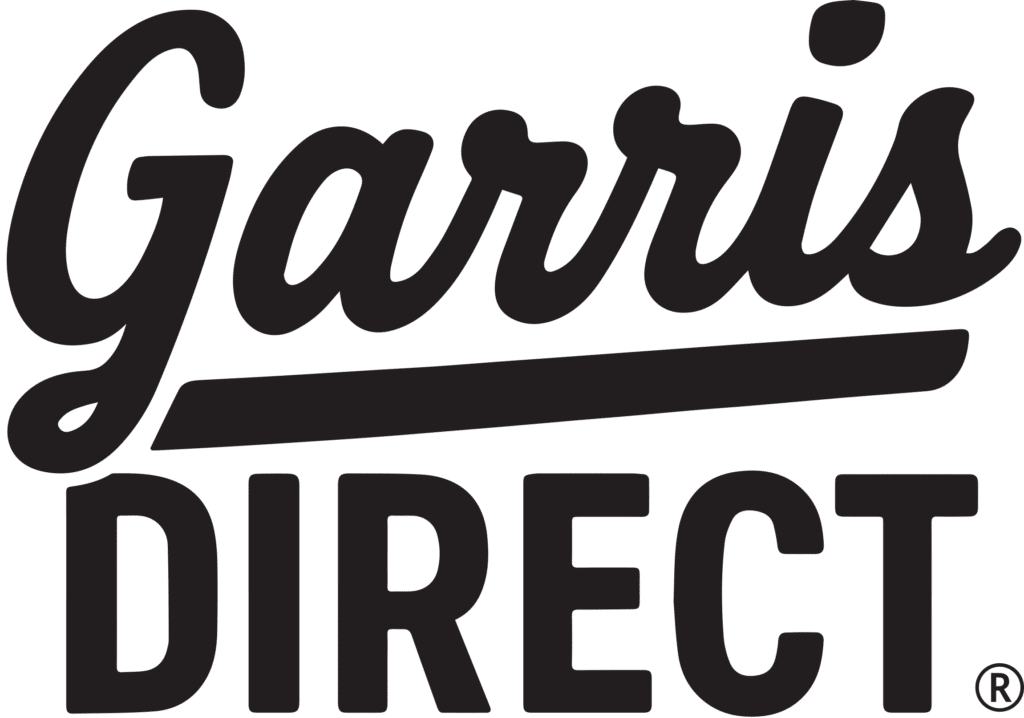Creating your dream home begins with a clear understanding of your vision. This foundational step is crucial, as it sets the tone for the entire construction process. Take the time to reflect on what you truly desire in a living space.
Consider aspects such as layout, style, and functionality. Are you drawn to modern aesthetics, or do you prefer a more traditional look? Do you envision an open-concept living area that fosters connection, or do you favor distinct rooms for privacy?
By articulating your preferences, you can create a comprehensive picture of your ideal home. Once you have a vision in mind, it’s essential to document it. Sketching out floor plans, collecting images from magazines or online platforms, and creating mood boards can help solidify your ideas.
This visual representation will not only guide you but also serve as a valuable tool when communicating with contractors and designers. Remember, your dream home should reflect your lifestyle and cater to your needs, whether that means incorporating energy-efficient features, ample storage solutions, or outdoor living spaces. The more detailed your vision, the easier it will be to bring it to life.
Key Takeaways
- Defining your dream home is the first step in the construction process, and it’s important to have a clear vision of what you want.
- Research and interview potential builders to find the right contractor who understands your vision and has the experience to bring it to life.
- Determine your construction costs by carefully budgeting for materials, labor, and any additional expenses that may arise during the project.
- Select the right features and upgrades for your home by customizing your construction quote to fit your needs and budget.
- Ensure compliance with local building codes by navigating permits and regulations before starting construction.
Finding the Right Contractor: Researching and Interviewing Potential Builders
With a clear vision in hand, the next step is to find the right contractor who can turn that vision into reality. Start by conducting thorough research to identify potential builders in your area. Look for contractors who specialize in the type of construction you require, particularly those with experience in multi-family projects if that aligns with your goals.
Online reviews, testimonials, and portfolios can provide insight into their past work and client satisfaction. Additionally, seeking recommendations from friends or family who have undergone similar projects can lead you to reputable builders. Once you have a shortlist of potential contractors, it’s time to conduct interviews.
Prepare a set of questions that address your specific needs and concerns. Inquire about their experience with projects similar to yours, their approach to project management, and how they handle challenges that may arise during construction. Pay attention to their communication style; a contractor who listens and engages with your ideas is more likely to understand and execute your vision effectively.
Don’t hesitate to ask for references and follow up with previous clients to gauge their experiences.
This due diligence will help ensure that you select a contractor who aligns with your expectations and can deliver quality results.
Budgeting for Success: Determining Your Construction Costs
Budgeting is a critical aspect of any construction project, and understanding your costs upfront can prevent financial strain later on. Begin by outlining all potential expenses associated with your project. This includes not only the cost of materials and labor but also permits, inspections, and any additional fees that may arise during construction. It’s wise to create a detailed budget that accounts for both expected and unexpected costs, allowing for a contingency fund of around 10-20% of the total budget. To gain a clearer picture of your financial requirements, consider obtaining quotes from multiple contractors.
This will provide you with a range of estimates and help you identify any discrepancies in pricing. Be sure to ask for itemized quotes that break down costs for materials, labor, and other expenses. This transparency will enable you to make informed decisions about where to allocate funds and whether certain features or upgrades are feasible within your budget.
Remember that while it’s important to stick to your financial plan, investing in quality materials and skilled labor can pay off in the long run by enhancing the durability and value of your home.
Customizing Your Quote: Selecting the Right Features and Upgrades
| Feature | Description | Price |
|---|---|---|
| Custom Paint Color | Select from a range of custom paint colors for your vehicle | 500 |
| Leather Interior | Upgrade to luxurious leather interior for added comfort | 1000 |
| Advanced Safety Package | Includes advanced safety features such as lane departure warning and automatic emergency braking | 1500 |
| Technology Package | Upgrade to the latest technology features including a touchscreen infotainment system and smartphone integration | 2000 |
Once you have a budget in place, it’s time to customize your quote by selecting the features and upgrades that will make your home truly unique. This stage is where your vision comes to life through thoughtful choices in design and functionality. Consider elements such as cabinetry styles, flooring materials, lighting fixtures, and appliances.
Each decision contributes to the overall aesthetic and practicality of your space. When reviewing your options, think about how each feature aligns with your lifestyle. For instance, if you enjoy cooking and entertaining, investing in high-quality kitchen appliances or an expansive island may be worthwhile.
Alternatively, if sustainability is a priority for you, consider eco-friendly materials and energy-efficient systems that can reduce long-term costs. Collaborate closely with your contractor or designer during this phase; their expertise can help guide you toward selections that fit within your budget while still achieving the desired look and feel for your home.
Navigating Permits and Regulations: Ensuring Compliance with Local Building Codes
Before construction can commence, it’s essential to navigate the maze of permits and regulations that govern building projects in your area. Each municipality has its own set of building codes designed to ensure safety and compliance with zoning laws. Familiarizing yourself with these requirements early on can save you time and frustration down the line.
Your contractor should be well-versed in local regulations and can assist you in obtaining the necessary permits. The permit application process may involve submitting detailed plans and specifications for review by local authorities. Be prepared for potential inspections at various stages of construction to ensure compliance with safety standards.
While this process may seem daunting, it’s crucial for protecting both your investment and the well-being of future occupants. By working closely with your contractor to ensure all permits are secured before breaking ground, you can avoid costly delays and complications during construction.
Negotiating the Best Deal: Comparing and Analyzing Construction Quotes
Comparing Quotes Side by Side
Once you have gathered quotes from multiple contractors, it’s time to analyze them carefully to negotiate the best deal for your project. Start by comparing each quote side by side, paying close attention to the details outlined in each proposal. Look for differences in material quality, labor costs, timelines, and any additional services offered.
Identifying the Best Value
This comparison will help you identify which contractor provides the best value for your investment. Negotiation is an essential part of this process; don’t hesitate to discuss any discrepancies or concerns with potential builders. If one contractor offers a lower price but lacks certain features or quality materials found in another quote, use this information as leverage during negotiations.
Securing a Fair Deal
A reputable contractor will appreciate your diligence and may be willing to adjust their proposal to better meet your needs. Ultimately, aim for a balance between cost-effectiveness and quality; securing a fair deal is important, but compromising on quality can lead to issues down the line.
Securing Financing: Exploring Loan Options for Your Construction Project
Financing is often one of the most significant hurdles in any construction project. Understanding your options is crucial for securing the necessary funds without overextending yourself financially. Start by exploring various loan types available for construction projects, such as construction-to-permanent loans or traditional mortgages tailored for new builds.
Each option has its own terms and conditions, so it’s essential to research which aligns best with your financial situation. Consulting with financial advisors or mortgage brokers can provide valuable insights into securing financing that suits your needs. They can help you understand interest rates, repayment terms, and any associated fees that may impact your overall budget.
Additionally, consider getting pre-approved for a loan before finalizing contracts with contractors; this will give you a clearer understanding of how much you can afford to spend on construction while ensuring that you remain within budget throughout the process.
Finalizing Your Plan: Signing Contracts and Preparing for Construction
With financing secured and all details ironed out, it’s time to finalize your plan by signing contracts with your chosen contractor. This step is crucial as it formalizes the agreement between both parties and outlines expectations regarding timelines, costs, and responsibilities throughout the construction process. Ensure that every detail discussed is included in the contract; this protects both you and the contractor from misunderstandings later on.
Before breaking ground, take time to prepare for construction by organizing logistics such as site access, utility connections, and any necessary arrangements for temporary living situations if applicable. Clear communication with your contractor during this phase is vital; establish regular check-ins to discuss progress updates and address any concerns that may arise as work begins.
By laying this groundwork effectively, you set the stage for a smooth construction process that brings your dream home closer to reality.
In conclusion, embarking on a construction project requires careful planning and consideration at every stage—from defining your vision to finalizing contracts with contractors. By following these steps diligently, you can navigate the complexities of building a home while ensuring that it reflects your unique style and meets your needs for years to come.
If you are interested in learning more about maximizing space in multi-family construction projects, I recommend checking out this article on the benefits of multi-family construction. This article discusses how efficient use of space can lead to cost savings and increased functionality in multi-family buildings. By choosing the right materials and suppliers, as discussed in another article on maximizing efficiency, you can further enhance the overall quality of your construction project. Additionally, selecting the top cabinet choices for modern living, as outlined in this article, can add a touch of sophistication and style to your multi-family units.
FAQs
What are tailored construction quotes?
Tailored construction quotes are estimates provided by construction companies to potential clients for the cost of a specific construction project. These quotes are customized to the client’s needs and requirements, taking into account the materials, labor, and other factors involved in the project.
How are tailored construction quotes different from standard quotes?
Tailored construction quotes are different from standard quotes in that they are specifically customized to the client’s project. Standard quotes are more generic and may not take into account the specific needs and requirements of the client.
What factors are considered when creating a tailored construction quote?
When creating a tailored construction quote, construction companies consider factors such as the scope of the project, the materials and labor required, the timeline for completion, and any special requirements or preferences of the client.
Why are tailored construction quotes important?
Tailored construction quotes are important because they provide clients with a clear understanding of the cost and scope of their construction project. This helps clients make informed decisions and ensures that the construction company can accurately plan and budget for the project.
How can clients request a tailored construction quote?
Clients can request a tailored construction quote by contacting construction companies directly and providing them with details about their project. This may include architectural plans, specifications, and any other relevant information.





